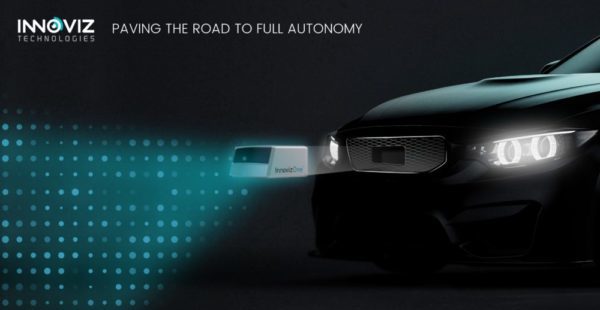LiDAR sensor (LiDAR – Light Detection And Ranging) detects surrounding objects and captures their distance to the sensor by emitting a very short light pulse and measuring the time that the light travels from the sensor to the object and back. LiDAR is a key technology for several applications including autonomous vehicles, intelligent transportation system, drone, measurement, sweeping robot and others. According to the 2018 Infrared Sensing Application Market Report by LEDinside, LiDAR laser market value is expected to reach USD 154 million in 2020.
LEDinside has collected information of LiDAR applications in different fields and here are some updates of the current LiDAR industry trends in the automotive market.
LiDAR sensor could be integrated into an advanced driver assistance system (ADAS) for providing real time condition of the surrounding environment of a vehicle, helping drivers to respond to different situations to avoid accidents. It has advantages in long-distance detection and depth resolution and has been adopted in autonomous cars for trials.
The leading LiDAR developer Velodyne LiDAR has been cooperating with different system solution providers to work on programs of autonomous driving. By the end of last year, the company announced its partnership with Unmanned Solution (UMS) of South Korea to develop integrated programs for a wide range of activities including on-road vehicles and agricultural equipment. Velodyne LiDAR has also reported that it worked with Renovo, an operating system supplier, with its new sensor to increase the reliability for autonomous vehicles. The two companies also collaborated to provide solutions for an American autonomous taxi startup.

(Image: Innoviz)
Big automotive manufacturers also worked with LiDAR sensor suppliers to develop advanced technologies for self-driving cars. The Canadian car components supplier, Magna and an Israeli LiDAR technology developer, Innoviz cooperated to provide BMW with their innovative sensor and system. They offered high-resolution LiDAR technology which generates a 3D point cloud in real time of the vehicle’s surroundings under all kinds of weather conditions.
To implement sensing technologies on its cars, Volvo Cars has invested in an American LiDAR sensor startup, Luminar, which utilize a different part of the infrared light spectrum. Volvo Cars was impressed by the performance of Luminar’s LiDAR sensor which claimed a range of more than 250 meters.
According to LEDinside, there are four main technical challenges for the development of LiDAR in the automotive market including sensing range, angular sensing resolution, field of view and computational challenges. Moreover, LiDAR sensor has to tackle the difficulties of harsh weather conditions such as snow, rain, dust, dirt or collision.












